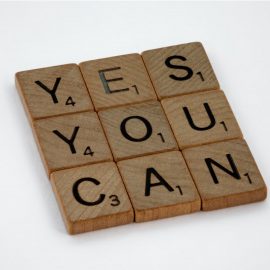

This article is an excerpt from the Shortform book guide to "The Seven Spiritual Laws of Success" by Deepak Chopra. Shortform has the world's best summaries and analyses of books you should be reading.
Like this article? Sign up for a free trial here .
How do you respond to your experiences? How do you respond to other people?
Deepak Chopra argues that how you respond can impact your experiences, for better or worse—a positive approach can make a big improvement. Chopra advises that you align yourself with the positive flow of thought-energy. When you consider the consequences of your actions, it’s easier to choose to act in ways that bring about positive results.
Continue reading to learn about manifesting positive energy.
Manifesting Positive Energy
According to Chopra, each time you choose to respond to your experiences and other people with a positive attitude, looking to benefit yourself and others, you align yourself with the positive flow of thought-energy and dramatically improve your experiences. Specifically, you direct your thought-energy to flow to and create the experiences that you want. This is manifesting positive energy. He explains that your intention to benefit others naturally curbs your resistant thoughts—instead of seeing situations as problems and focusing on what you don’t want, you see them as opportunities to seek solutions and focus on what you (and others) do want.
Chopra suggests aligning your thought-energy to benefit yourself and others by considering the consequences of your actions. Only act in ways that have a positive impact.
(Shortform note: While considering the consequences of your actions helps you to avoid taking actions that negatively impact others, it’s not so effective at helping you to come up with solutions to your problems. Tony Robbins (Awaken the Giant Within) suggests a practical way to generate these positive solutions: Ask yourself empowering questions. Empowering questions encourage your mind to effortlessly come up with proactive and positive solutions and stay focused on what you want. For example, if you’re in the midst of a disagreement with someone, ask yourself, “What can I do to resolve this situation in a way that makes us both happy?”)
Further, Chopra suggests that you direct your thought-energy to create specific positive things by proactively giving others what you want to receive or experience. Since your experiences always reflect your thought-energy, your positive intentions flow back to you to create happy, beneficial experiences. For example, if you want others to respect you, show them your respect.
(Shortform note: While it’s difficult to prove whether proactively giving others what you want will create similar experiences for you, scientific research confirms that contributing to the wellbeing of others does make you happier. The studies show that when you give (knowledge, assistance, time, or money) with the intention of helping others, you activate the same parts of your brain that are stimulated by pleasurable activities such as eating good food or having great sex.)

———End of Preview———
Like what you just read? Read the rest of the world's best book summary and analysis of Deepak Chopra's "The Seven Spiritual Laws of Success" at Shortform .
Here's what you'll find in our full The Seven Spiritual Laws of Success summary :
- Why success isn't based on how much you achieve or accumulate
- How true success comes from aligning with the flow of spiritual energy
- Chopra's five methods for connecting with thought-energy






